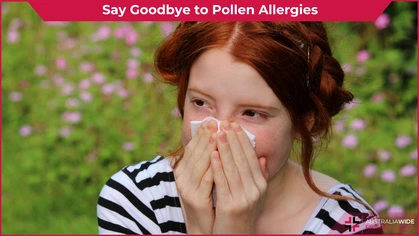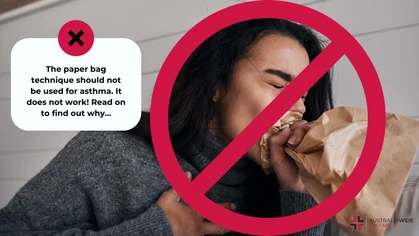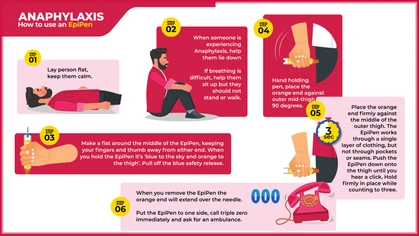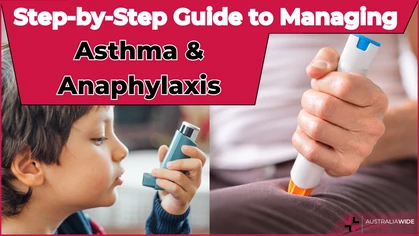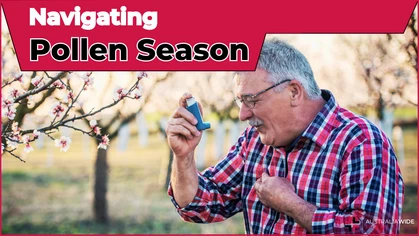Why Pollen Count Adelaide is Important

Allergy and Asthma
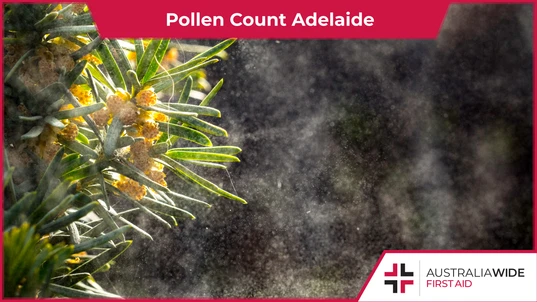
Pollen counts like the Adelaide Pollen Count forecast the level of pollen in the air. Pollen can trigger symptoms of asthma, a chronic condition in which the airways narrow and make breathing difficult.
Pollen is a powdery substance produced by flowering plants, angiosperms, when they reproduce. Pollen can trigger symptoms of asthma, a chronic condition in which the small tubes that carry air to and from the lungs become blocked and make it difficult to breathe. According to Asthma Australia, one in five people residing in Adelaide, the 'Garden City of Australia', live with hay fever and/or asthma. For this reason, Asthma Australia helps coordinate the Adelaide Pollen Count, a daily report of grass pollen levels from the past 24 hours. In this article, we will look at why pollen counting is vital to the wellbeing of asthma sufferers in Adelaide. And if you live in Adelaide and would like to learn more about identifying and managing the symptoms of asthma, check out the following courses near you:
The exact cause of asthma is unknown. However, it can be triggered by common allergens, including pollen. Pollen allergies are commonly signalled by a runny nose, watery eyes, and itchy skin.
Pollen and asthma
As we mentioned earlier, pollen triggers symptoms of asthma. Asthma is a chronic condition in which the airways become narrow and make it difficult to breathe. Severe asthma attacks are generally characterised by shortness of breath or wheezing and can be life-threatening without prompt treatment. There are 3 main factors that cause the airways to narrow:- The inside lining of the airways inflames and becomes red and swollen
- The muscle around the airways constricts or tightens
- The airways produce extra mucus
- Airborne allergens, including dust mites, mould spores, and animal dander
- Respiratory infections, such as the flu and common cold
- Exercise
- Air pollutants or irritants, including cigarette smoke and perfume
- Changes in temperature and weather, especially exposure to cold air
Why pollen counts are important
Pollen counts, including the Adelaide Pollen Count, measure the number of pollen grains in a cubic metre of air. They are used by pollen indexes, such as the Brisbane Pollen Index, to forecast the likelihood of allergic reactions among susceptible people. This information can help asthma sufferers take the necessary precautions to reduce their exposure to pollen and the risk of an asthma attack. These precautions can include:- Staying indoors on days of high pollen count
- Using allergy relief options, such as nasal sprays
- Cleaning surfaces regularly to avoid the accumulation of dust
- Changing your clothes and taking a shower after being outdoors, to remove any pollen you may have picked up
Final thoughts
Asthma is a chronic condition in which the airways narrow and make breathing difficult. Though the exact cause of asthma is unknown, symptoms of asthma can be triggered by common allergens, including pollen. Pollen counts, such as the Adelaide Pollen Count, and pollen indexes provide day to day forecasts on the level of pollen in the air. As such, they are vital in helping asthma sufferers reduce their exposure to allergens and the risk of an asthma attack. If you would like to learn even more about treating asthma symptoms in Adelaide, book a first aid course with us today:
Originally published at
https://www.australiawidefirstaid.com.au/resources/pollen-count-adelaide
as part of the Australia Wide First Aid Articles Library



